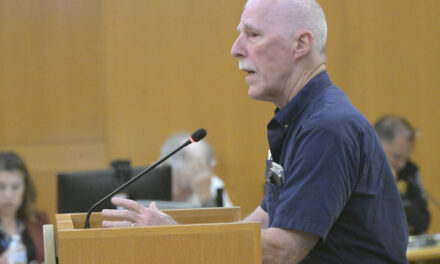If our world was a metaphor, it would be this one.
Free roaming sheep were attacked by wolves. In the midst of panic, the sheep overlooked the nature of the wolves and blamed their fangs. Over time, the sheep became afraid of fangs and saw it as the root of all of their problems. So, they removed their own teeth first. Only when the wolf inevitably attacked again, they were left defenseless, decimated, and toothless.
We are the sheep. Societal challenges are the wolves.
This metaphor highlights that even as an advanced society, we decide to blame one-another without taking the effort to look deeper into the issue.
Matters such as exploitation, ignorance, inequality, and violence have generated much controversy over time, and many have approached these problems with solutions rooted merely in the context of modern times.
“Tax this! Ban that!” are short term fixes that we reprimand every day.
The solution is not as simple as black and white. These issues do not just exist within the bounds and breadth of our contemporary society, but they have been instigated over centuries of policy making, global relations, and the culture of societal thinking.
This means that they have to be approached in an insightful manner that does not just mean “removing our teeth first,” but working together to promote a greater movement of cultural awareness, self-expression, unity, and help build a new era that would inspire our society to flourish.
However, this cannot be achieved unless it is understood that there are two sides to this metaphor.
By recognizing that it is not the fangs to be afraid of but the wolf itself, people are able to take the first step in resolving some of the major problems that our public faces. But it is deteriorative to assume that eventually the wolves will stop attacking.
Societal culture has shaped people to believe their independent decisions won’t make a difference, so they turn a blind-eye to these problems – thus further instigating them.
If the wolves had attacked the first time, and the second, why didn’t the sheep move by the third?
It is through fear that society will be left helpless, but it is through ignorance that our problems will only grow greater.
I denounce the notion that we are in this societal position solely due to one blanketing reason over the other; but I believe that it is due to the imbalanced and unsystematic regulations of these issues that were driven by short-term motivations – all of which has only led to a pattern of revolving issues, the sheep won’t move, and the wolves keep attacking. The sheep become more fearful while the pack of wolves grow larger each time.
The fact of the matter is, had we not rushed our solutions to contemporary problems and worked towards implementing a better system, maybe we’d be living in a world that’s able to sustain the needs of its populace while heeding the way for a progressive social mindset that will allow us to truly advance.
Just as many of the issues we face in society, if people were exposed to enhanced societal thought, they would be able to collaborate to create solutions that encompass socio-political, economic, and moral foundations that will ensure the longevity of its effectiveness and amelioration of our global populations.
Our minds have been conditioned for centuries to think that changing a narrow societal mindset is impossible to accomplish, but this mentality is only reinforcing sheepish behavior.
If people don’t come together and move the flock, how will we ever know if the wolves will stop attacking?
The answer is that we will never know until we try.


